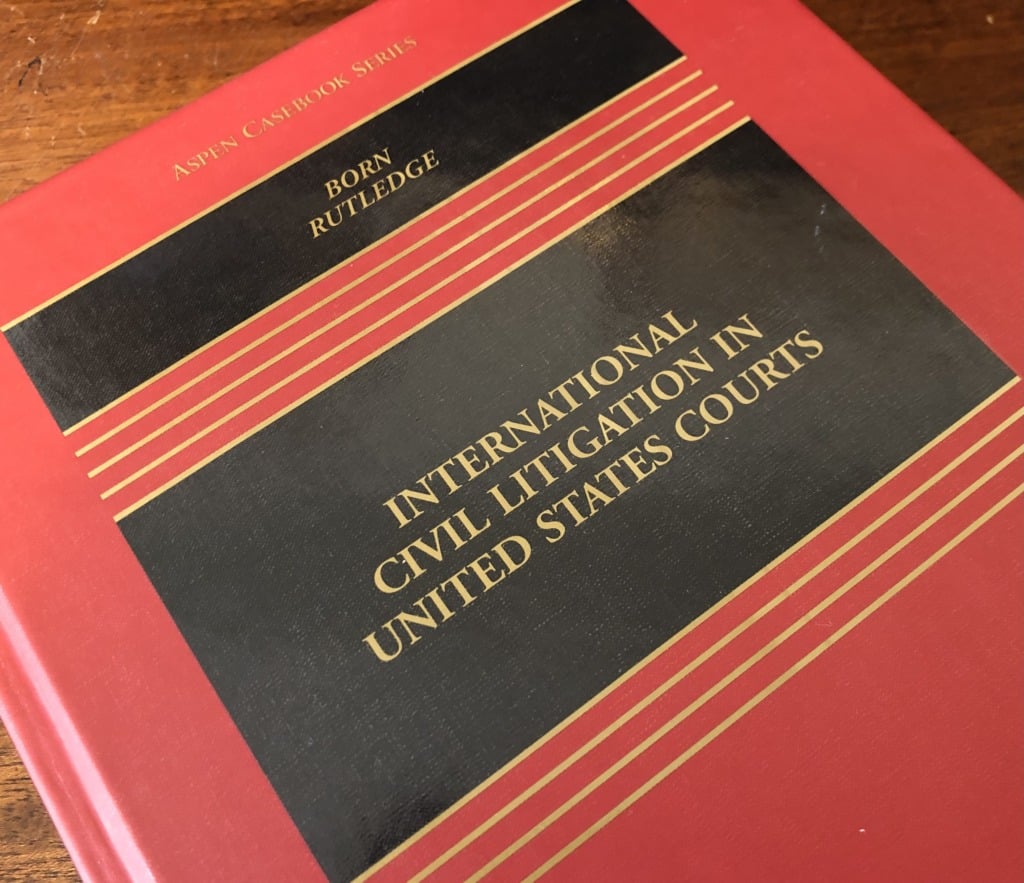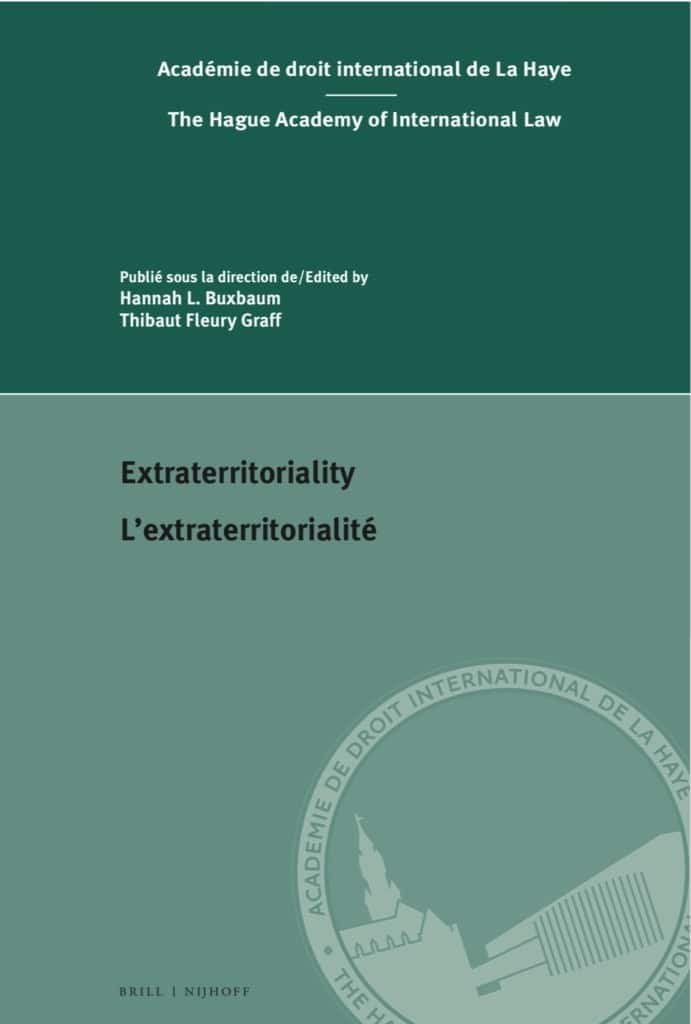Admiralty’s Influence on Transnational Procedure
Admiralty was the original site of transnational litigation in U.S. courts. Given the breadth of admiralty jurisdiction, the federal courts developed a number of procedural tools for balancing international comity and practical concerns in these international business disputes. Just because a foreign ship showed up in a U.S. port, for instance, didn’t mean a U.S….
Continue ReadingNew Scholarship on Anti-Suit Injunctions
Raghavendra R. Murthy, outgoing Editor-in-Chief of the Vanderbilt Law Review, has published a note on antisuit injunctions and patent litigation: Why Can’t We Be FRANDs?: Anti-Suit Injunctions, International Comity, and International Commercial Arbitration in Standard-Essential Patent Litigation. The note explores the rise of anti-suit injunctions related to the licensing of “standard-essential patents.” Owners of such…
Continue ReadingNew Paper on Bias in Choice of Law
Dan Klerman has a new paper, Bias in Choice of Law: New Empirical and Experimental Evidence, that seeks to determine the extent to which U.S. courts exhibit bias when applying modern choice-of-law rules. The paper draws upon a dataset of choice-of-law cases involving automobile accidents decided between 1963 and 2018 and relies on regression analysis…
Continue ReadingNew Scholarship on the FSIA
Vivian Grosswald Curran (University of Pittsburgh) has a draft article up on SSRN entitled Nazi Stolen Art: Uses and Misuses of the Foreign Sovereign Immunities Act. Many important FSIA cases have involved great works of art stolen by the Nazis including the Supreme Court’s 2003 decision in Altmann v. Republic of Austria concerning the ownership…
Continue ReadingEnforcing Chinese Judgments: A Response
In July, Bill Dodge discussed the enforcement of Chinese judgments in U.S. courts, using the Shanghai Yongrun case as a recent example and arguing against systemic review of foreign legal systems. Along the way, he cited Judging China, a recent paper of mine. He accurately characterized me as less than enthusiastic about U.S. courts enforcing…
Continue ReadingNow or Then? The Temporal Aspects of Choice-of-Law Clauses
Several years ago, I published a paper that examined how U.S. courts interpret choice-of-law clauses. That paper contains a detailed discussion of the most common interpretive issues—whether the clause selects the tort laws of the chosen jurisdiction in addition to its contract laws, for example—that arise in litigation. There was, however, one important omission. The…
Continue ReadingReflections on the New Edition of International Civil Litigation in United States Courts
Over twenty years ago, a horrible accident occurred at the ski resort of Kaprun, Austria. At that time, I was a young attorney working at a European law firm. The firm’s partners read about new lawsuits, filed in the United States, that threatened to bring all the procedural tools of the United States judicial system…
Continue ReadingSurveying Extraterritoriality
TLB advisor Hannah Buxbaum has posted to SSRN a piece entitled “The Practice(s) of Extraterritoriality.” It is an introductory chapter from the book Extraterritoriality/L’extraterritorialité, edited by Buxbaum and Thibaut Fleury Graff, which grew out of the 2019 Centre for Studies and Research at the Hague Academy of International Law. Buxbaum’s chapter is a masterful survey of extraterritoriality…
Continue ReadingIs the Treaty Supremacy Rule Really Dead?
In Medellín v. Texas, the U.S. Supreme Court held that a non-self-executing treaty does not supersede conflicting state law, or perhaps that courts cannot enforce non-self-executing treaties to override conflicting state laws. After Medellín, one would have expected state courts in treaty supremacy cases to begin their analyses by determining whether a treaty is self-executing….
Continue ReadingThe Political Question Doctrine in the Lower Courts
Curt Bradley and Eric Posner have posted to SSRN a fascinating new paper about the political question doctrine. In The Real Political Question Doctrine, they take an empirical look at cases applying the doctrine in the lower federal courts since the Supreme Court’s 1962 decision in Baker v. Carr. Among other things, they find that…
Continue Reading





